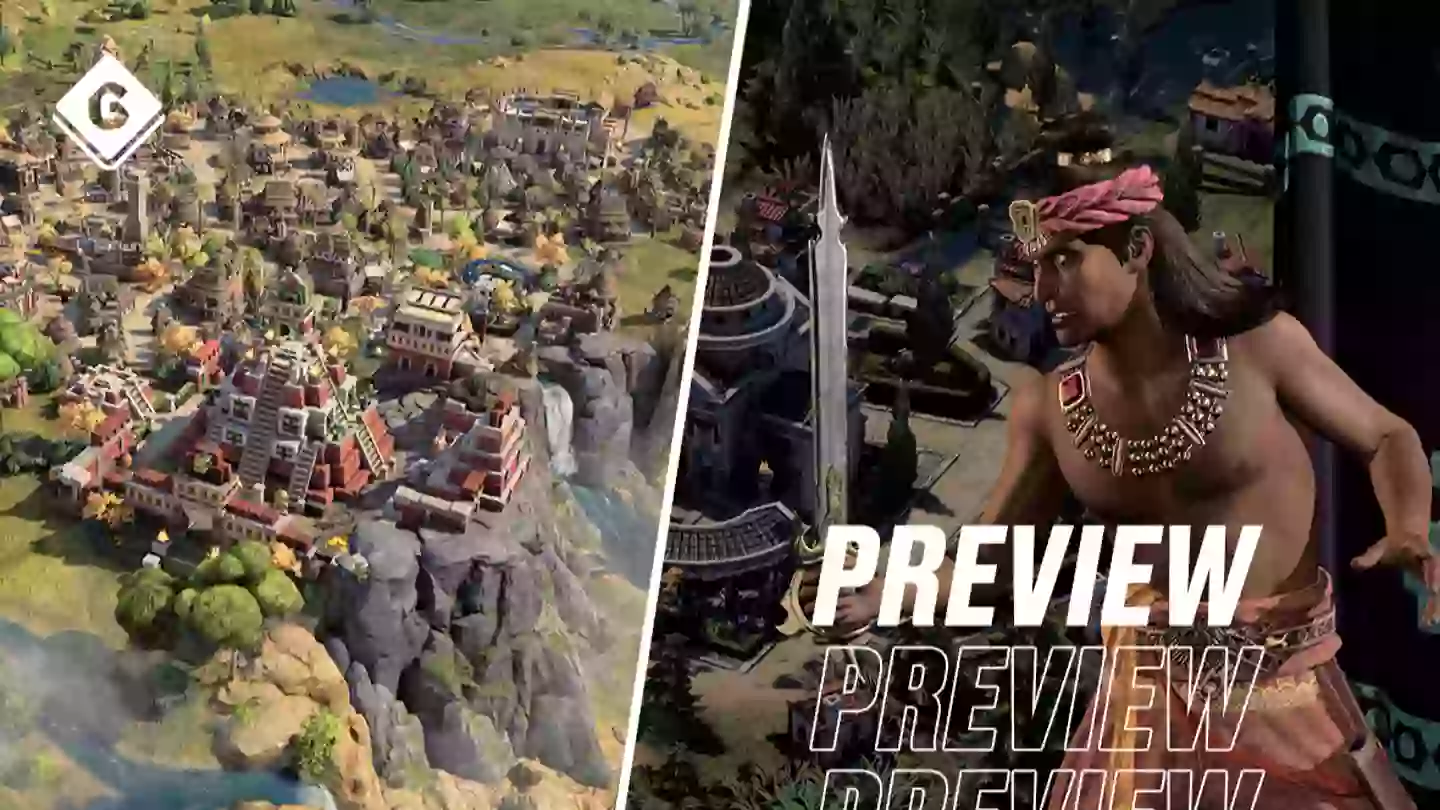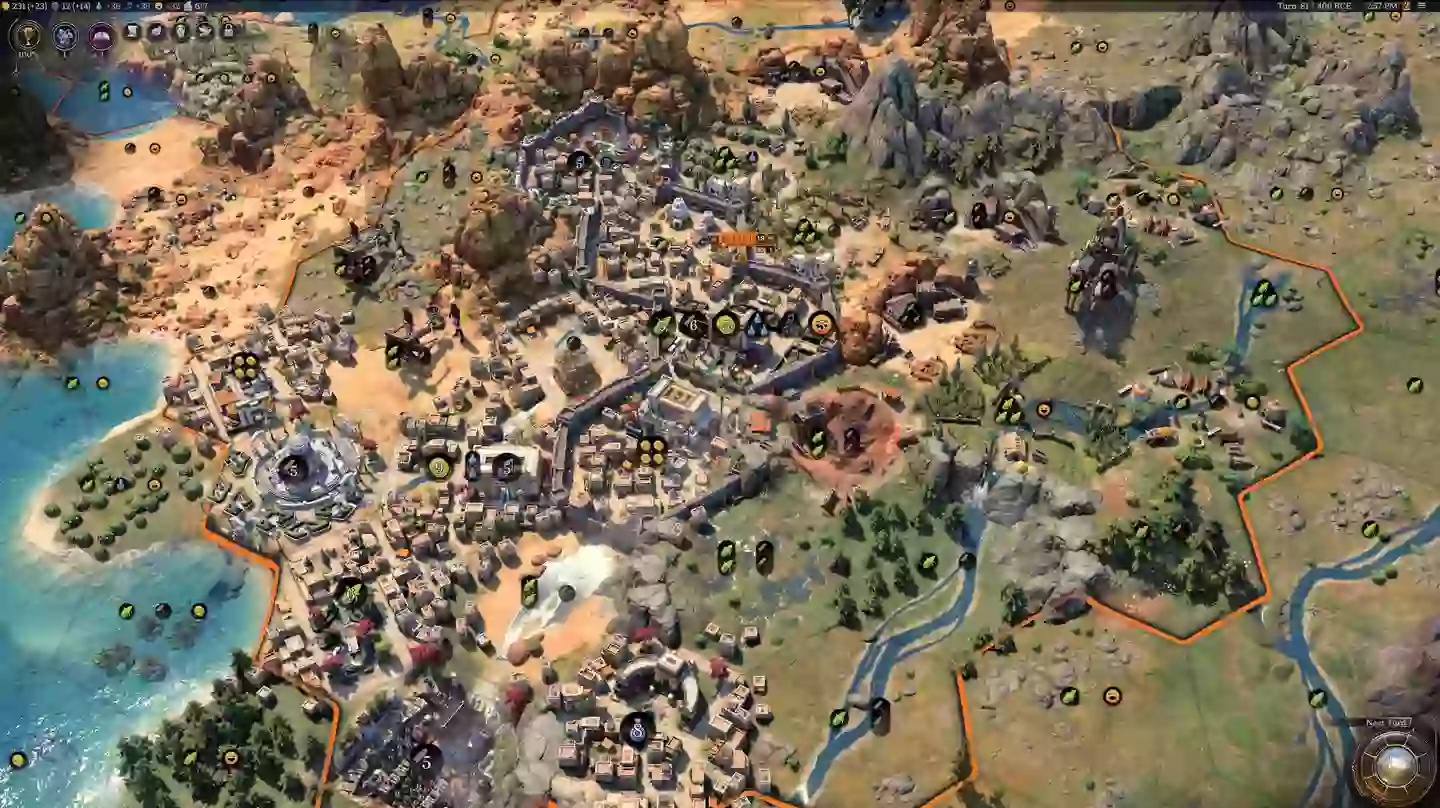
I’ll get the glaring confession out of the way first. I’m not well versed in the world of Civilization, but there's a very good reason why I, a relative noob, went hands-on the upcoming seventh instalment at this year’s Gamescom. Sid Meier’s Civilization VII aims to shake up the tried and tested formula. For too many years, loyal players have been able to guess the next moves of Firaxis Games before Firaxis has even so much as twitched. With Civilization VII, that’s all changed.
In a bid to outsmart and surprise fans, Civilization VII has torn up segments of its usual rulebook and done away with its predictable roadmap of features. After Civilization VI was criticised for feeling too similar to its predecessor, Civilisation VII is a fresh start. For the first time in a long time, returning players should be able to find something new and surprising but at the same time, Civilization VII has been pitched as the best opportunity in years for new players to onboard the series. That’s where I come in.
I had the opportunity to attend a press briefing at this year’s Gamescom as well as go hands-on with the game myself, allowing me to test out Civilization VII from the perspective of a newbie whilst chatting to devs about the more subtle changes that’ll entice in those returning and loyal players. It didn’t take long for me to assess that not only is Civilization VII wholly accessible regardless of your level of knowledge, in stripping away some of its prior restrictions, it introduces players to a whole kind of new level of liberated fun.
Advert
Take a look at Sid Meier’s Civilization VII in action below.
What I mean by that is your civilisation does not need to ‘make sense’. You can start off with Hatshepsut ruling Ancient Rome or Augustus of Rome ruling Ancient Egypt. The choice is yours, and you’ll see that level of choice continue to be reflected as you progress through Civilization VII’s various ages. The game is split into three distinct periods: the ages of antiquity, exploration, and modern. If you begin life in Ancient Egypt, that doesn’t necessarily predetermine how your civilisation will evolve in the age of exploration. Firaxis has added a new sense of player autonomy.
That’s far from being all that’s new. Influence is now a major gameplay component with players able to assert influence over neighbouring territories, outposts, or strongholds. This is something you’re going to want to keep an eye on, especially if you’re a new player. You may rush into exploring your surroundings or building important infrastructure to support your people and while, yes, that is important so too is an army. You don’t have to be an aggressor, but a small nearby hostile outpost could soon grow into something a tad more threatening - if left long enough, an entire enemy city state. If you diplomatically extend a hand though, you could end up with helpful allies that’ll boost your trade and coffers.
Advert
For the complete newcomers like me, you’ll be relieved to know that Civilization VII somewhat holds your hand in those early days, as is the nature of the turn-based mechanics. There’s a fair amount of decision making involved too, like where to place your next city tile or what endeavour to fund but you’re at the very least prompted at each stage. It turned an experience I felt somewhat daunted about into something I wholly enjoyed.

For those of you who are sitting there thinking, yes, this is obvious. Don’t worry, I picked up a few interesting tidbits for you too. This time around, all players will have to pick a legacy path, somewhat dictating the, you guessed it, legacy of what you’re building. There are four to choose from: science, cultural ,military, and economic. Picking a legacy path doesn’t lock you into choices per se, but it does set some foundational goals that you’ll want to follow if you’re hoping to achieve ‘victory’.
Overall, I have immense faith that players new and old will find a great sense of enjoyment in Sid Meier’s Civilization VII. The game looks fantastic, plays smoothly, and vibrantly brings to life the civilisation crafted by your own two hands. The introduction of legacy paths, as well as independent powers, influence as a currency, and other subtle changes like the introduction of regiment commanders will surely capture the attention of long-term players, adding in a much needed element of change. For those who have always felt daunted by the franchise’s systems though, you needn’t be. Sid Meier’s Civilization VII is a great stepping stone. It’s a game I’m looking forward to seeing more of, and I was not expecting that to be the case.
Advert
Sid Meier’s Civilization VII is set to launch on 11 February 2025 on PlayStation 4/5, Xbox Series X/S, Nintendo Switch, and PC.
Topics: Preview, PlayStation, Xbox, PC, Nintendo Switch